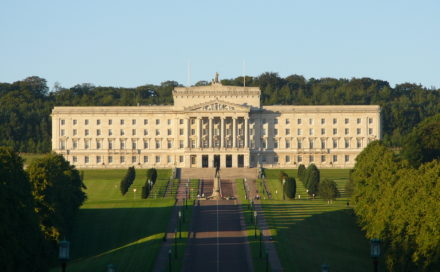
The Labour Party has only allowed people in Northern Ireland to become party members since 2003, when we were advised that to do otherwise would be discriminatory. Before then, we suggested they join our sister party, the Social Democratic and Labour Party (SDLP). This policy has its roots in British Labour’s decision in 1913 not to stand against the newly formed Irish Labour. The SDLP was formed in 1970, and Irish Labour stopped standing in the North soon after. Today there is a single province-wide CLP in Northern Ireland, but Labour still refuses to stand candidates there for any elections. The well-meaning justification rings of anti-imperialism; we do not wish to push a London-headquartered party onto the people of Northern Ireland.
For many Labour members in Northern Ireland, though, this is seen as a curtailment of their right to take part in civic life. Their executive voted to defy the national party and stand candidates in Northern Irish assembly elections in 2016 and 2017. This was not well received by the national party, who threatened to – and in one case did – expel members for standing for other political parties (having had to set up separate organisations to facilitate their candidacy). This is in direct contradiction to the rejection by Labour of any election pact against the Conservatives at 2017’s general election. At that time, a Labour spokesman said we would “field candidates in every seat”.
Even if Labour is correct not to stand in Northern Ireland, our choice of partner is increasingly problematic. Only this year did the SDLP cease to whip their MLAs against the liberalisation of abortion law, an area where Northern Ireland infamously trails behind the rest of the UK and Ireland. This year, women’s conference passed a motion explicitly calling for an end to our connection with the SDLP. Meanwhile, the SDLP’s status as an established nationalist party alienates potential unionist voters. They are moving away from their socialist roots too – after declining electoral success, they are now eying a possible merger with Ireland’s centre-right opposition party, Fianna Fáil. This implicit rejection of Ireland’s own Labour Party, and socialism generally, must be the final nail in the coffin of any claim to the loyalty of the British Labour Party.
We cannot simply pick a new horse to back in the Stormont race, and the Northern Irish people shouldn’t have to settle for supporting Labour’s chosen surrogate. Northern Ireland has many left-leaning citizens – it has a higher proportion of trade union members than the UK average – but many feel unrepresented at Westminster. Between knowing they will never vote for the party that forms a national government and the unchanging result of “NI: 18 seats” at every general election, it is easy to become politically apathetic. As the nation struggles with Brexit, the DUP are left as the only voice in parliament of the region of the UK most vulnerable to its impact.
Jeremy Corbyn has described the current situation as a “democratic deficit” and said that he will consider fielding candidates in Northern Ireland at the next general election. Labour’s NEC is currently carrying out a review into the policy of not fielding candidates and was expected to deliver its findings at this year’s conference. However, at the Labour Irish Forum, it instead announced a delay while it considered the implications of the potential SDLP/Fianna Fáil merger. Many believe the issue is now being kicked into the long grass: the merger can only be an argument against our current arrangement, and so should only have made the reviewers’ decision even easier. Perhaps tellingly, the SDLP leader was unusually absent from this year’s Labour conference.
With the threat of a Brexit-induced snap election looming, this issue may not get the attention it deserves before the next general election, but prolonging the process only makes it more likely that the decision will be taken out of our hands. It is time that Labour finally overturns this outdated policy, reorganises Northern Irish members in the style of Scottish and Welsh Labour, and stands candidates in Northern Ireland at a local, regional, and national level. Only then can we honestly claim to represent the entire country.
Matthew Shannon is a Labour activist from Northern Ireland, currently based in Leeds.




More from LabourList
‘I spent years telling workers the law couldn’t help them – that has changed’
Josh Simons resigns as Cabinet Office minister amid investigation
‘After years of cuts, Labour’s local government settlement begins to put things right’